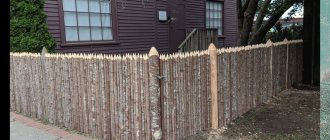What is SNT?
Explanation SNT - gardening non-profit partnership. A federal law adopted in 1998 specifies that this is a non-profit organization created by gardeners themselves. The purpose of its existence is to conduct joint farming, organize vegetable gardens and orchards.
This non-profit association has the status of a legal entity. This makes it possible to regulate conflict situations that arise between gardeners regarding land ownership and regulates rights and responsibilities.
Joining and leaving the association
You can become a member of SNT only with the consent of its other members
The specifics of joining the SNT are determined by the same federal law No. 18. It states that members of such a partnership can be:
- adult citizens of the Russian Federation;
- they must own a plot of land located within the boundaries of the partnership.
The decision to join the association is made at a general meeting of members of the partnership.
To join SNT, the following conditions must be met:
- Purchase a plot of land.
- After the official conclusion of the purchase and sale transaction, submit an application for admission to SNT membership. It must be accompanied by a passport and papers confirming ownership of the plot.
- Pay entrance and membership fees. Their size and procedure for payment are determined by the charter of a particular partnership.
- At the general meeting, a decision is made to include a citizen as a member of the gardening partnership.
After a positive decision, the new member must be given a membership book or other document within 3 months that would confirm his membership in the association.
When a plot is sold, a citizen's membership is terminated automatically. But you can leave the partnership while still owning the land. True, this will not free you from the obligations of making payments and maintaining the land.
In case of voluntary withdrawal, an application in free form is submitted to the chairman. When sending an application by mail, it is recommended to duplicate it at the board’s email address. Such a document does not have legal force, but the board will be notified. In the event of a dispute, you will confirm that you sent such a paper.
For the same purpose, you need to prepare two copies of the application if you submit it in person. Take the second one for yourself with a note indicating receipt of the application by the board.
Advantages
SNTs are usually located in picturesque, ecologically clean areas
A list of pros and cons that a member of the partnership has will help you understand in detail what SNT is.
The advantages include:
- low cost compared to individual housing construction;
- it is allowed to start building a house on a plot of any size;
- the tax rate is lower: if for individual housing construction it is 1.5%, then for SNT – 0.3%;
- location - mostly ecologically clean places, with nearby ponds and forests;
- there is an opportunity to farm on lands characterized by high fertility.
These factors become decisive for many when deciding to purchase land in gardening partnerships and become their members.
Flaws
However, there are also disadvantages. After all, SNT is a partnership, the members of which must fulfill certain duties, submitting to the opinion of the majority.
The disadvantages include:
- The need to pay fees. Gardeners are engaged in the development and improvement of the partnership at their own expense. They support the board with personal funds.
- Lack of communications. By default, partnerships do not have electricity, running water, gas, or sewerage. They must be carried out at your own expense, teaming up with other members.
- Most SNTs are located at a considerable distance from city and regional infrastructure.
- It is difficult to get a bank loan for the construction and renovation of a house. Loans are issued reluctantly and at high interest rates.
- It takes a lot of time to process tax deductions.
These factors must be taken into account when deciding to purchase a plot of land on the territory of SNT.
Peculiarities
Unauthorized buildings related to SNT can now be legalized
Gardening partnerships have a dacha amnesty, which allows them to register houses and any other buildings according to a simplified scheme. Now it has been extended until March 1, 2026 (extended by the State Duma in the first reading in October 2021 - author’s note). Moreover, from March 1, 2021, the owner is obliged to coordinate the house construction project with the local administration. The authorities issue official permission for a period of 10 years.
The same things are allowed with plots in a garden partnership as with any other property:
- acquire;
- sell;
- present;
- leave as a legacy.
There are certain relaxations and restrictions for the owner. SNT allows:
- build a private residential building;
- engage in the construction of outbuildings;
- change the status of the site;
- conduct gardening, planting crops.
Restrictions include:
- conducting communications without agreement with other members of the association;
- organization of private business activities and subsidiary farming;
- It is prohibited not to comply with the rules and charter adopted at the general meeting.
In addition to the garden partnership, there are several other forms of associations.
Land plots for SNT - advantages and disadvantages of the SNT plot
Land for SNT belongs to the same category as land for DNP. The difference is that plots of land in SNT will cost more than approximately equivalent plots in DNP, because they have a higher quality score (for higher land fertility). Accordingly, sites for SNT are located in more environmentally friendly and beautiful areas, have more convenient entrances, and special transport routes often go there.
Advantages of the SNT land plot:
- Lower cost than plots of land for individual housing construction.
- Located outside the city, in the countryside.
- It is not necessary to build a country house on a plot of SNT land - the land can only be used for growing crops if its owner so desires.
Disadvantages of the SNT land plot, restrictions:
- You will have to pay for the connection of roads, communications: gas, water supply, electricity, sewerage to the plots in SNT. Most often, it is very difficult and expensive to carry out communications to SNT sections, and sometimes it is impossible.
- It is often impossible to register for housing on the SNT site, since the house is located on agricultural land.
- Although the Constitutional Court of Russia in some cases recognizes the right of homeowners on SNT land to have permanent registration in this home (propiska), in reality this can be very difficult and time-consuming to accomplish.
- SNT banks rarely accept plots of land as collateral when they want to formalize a mortgage transaction.
- Regardless of how large and substantial a house you built on the SNT site, according to the documents it will still be listed as a country house. Depending on this, the expert assessment of your home may be low if you want to sell it, difficulties will arise with registration of all family members, etc.
What is DNP?
DNP stands for dacha non-profit partnership. This is one of the most common forms in the field of country real estate.
You can register in a house that belongs to the DNP
An important advantage is the ability to register on the territory of a dacha partnership, even without recognizing the house as residential.
DNP can be organized in areas related to lands:
- farmland;
- settlements.
A dacha partnership must consist of at least 3 people. It is also registered with the tax service to formalize the status of a legal entity. There is an obligation to make contributions that support the existence of the partnership.
Joining and leaving the association
To join the DNP you need to write an application. It is considered at a general meeting of members of the organization, who make decisions on enrolling the petitioner in their ranks and allocating him a plot of land.
After this, an entrance fee must be paid, and the site is allowed to be privatized. By law, the plots are intended for the construction of seasonal houses or running a small summer cottage.
Advantages
The advantages of owning a plot in a dacha non-profit partnership include:
- The right to build a house, which does not have to be recognized as a residential property. In this case, the house is considered suitable for permanent residence.
- If the partnership is located within a populated area, it is easy to resolve the issue of obtaining registration in its area.
These advantages encourage many to purchase plots in the DNP.
Flaws
The disadvantage of most DNP is the lack of infrastructure
But there are also certain disadvantages. Due to the fact that the DNP lands were initially intended for agricultural activities, certain difficulties arise during the construction of a permanent residential building.
- Due to the status of the land, it will not be possible to count on free gas and water supply to the house. It is allowed to organize communications only with the help of commercial structures at the expense of the land owners.
- The construction of social infrastructure facilities - clinics, kindergartens, schools - is not expected here.
- Getting a mortgage loan from a bank is problematic, since they rarely agree to accept a dacha plot as collateral.
If a partnership is liquidated, its members retain rights to the land plots and all real estate located on them.
Peculiarities
Creating a dacha partnership involves jointly solving everyday and legal issues and financial problems. All profits go towards solving the needs of the community.
Features of the functioning of the DNP are as follows:
- elections to governing bodies are independently organized;
- partnership members themselves control the work of the board;
- within the framework of the executed agreement, it is possible to use the land and buildings on it at your discretion;
- upon liquidation, each member is given a share in the common property.
The main condition is that the land must be developed within 3 years.
What has changed since 2020
On January 1, 2021, the Federal Law “On Civil Gardening and Vegetable Farming...”, adopted in 2021 instead of the objectively outdated Federal Law of April 15, 1998 N 66-FZ, came into force.
The new law contains significant changes:
- The new law leaves only two forms of management: gardening and vegetable gardening, that is, SNT and ONT, respectively. All other forms of management were not included in the new law. There are also no concepts of “dacha”, “dacha plots”, “dacha associations” and so on. That is, the DNP loses its legal significance. Thus, the new law eliminated the artificially created differences between dacha and gardening associations;
- A dacha land plot (DNP) is equivalent to a SNT plot;
- All country houses that have the values “residential” or “residential building” in the Unified State Register are recognized as residential buildings. With the meaning “non-residential”, intended for temporary stay and recreation, are recognized as garden houses (with the exception of outbuildings and garages);
- Now it is easier to register in SNT (previously it was extremely difficult to register). This is possible if the house located on the site is recognized as permanent and suitable for permanent residence, and is also registered in the Unified State Register of Real Estate;
- It has become easier to build a house on the SNT site: approval and registration procedures have been simplified;
- Contributions can only be membership or targeted. This means that entry fees and other arbitrary fees can no longer be charged;
- Contributions can only be collected through the partnership's bank account. Cash payments are not allowed. In this way, legislators are trying to increase transparency in the collection and expenditure of funds;
- The minimum number of members of the partnership (owners of plots) is 7. If this requirement is not met, the partnership may be liquidated by court decision;
- The board of the partnership must consist of at least three people. The duration of their powers is 5 years (as opposed to 2 years in the previous law);
- Payment of land tax for common areas (roads, etc.) is divided in proportion to the participant’s share;
- In case of delay in payments and contributions by more than 2 months, a member of the partnership may be expelled from the association;
- The new law obliges municipal authorities to develop programs to support gardening and vegetable gardening. Support may take the form of improved infrastructure; assistance in installing electrical networks, water supply, gas and sewerage; financing cadastral works on the territory of gardening partnerships.
What is DNT?
DNT stands for dacha non-profit partnership. The property is divided into the following categories:
- if it was purchased with contributions from all participants, then it is considered the property of each member;
- if it was purchased with money from a special fund made up of membership fees, only a legal entity can use it.
Joining and leaving the association
To join the DNT you must write an application. It must be accompanied by:
- passport;
- papers evidencing ownership of the site;
- cadastral passport;
- extract from the BTI.
The documents are submitted to the board. The decision is made at a general meeting of summer residents. You have 1 month for this. The decision is made by a simple majority of votes.
When leaving the DNT, an application is submitted to the board. Afterwards, an agreement is signed regulating subsequent relations between the owners.
Advantages
Getting a plot of land in DNT is the most financially accessible option
The main advantages of membership in DNT include:
- low prices of plots;
- registration is available;
- no commission invitation is required to accept the house;
- assistance of the board in resolving all issues of interest;
- low utility bills;
- no registration fee required;
- You can combine several neighboring plots to create huge properties.
Flaws
The disadvantages of a dacha partnership include:
- high cost of connecting communications to the house;
- problems with obtaining registration;
- lack of social facilities within walking distance;
- it is necessary to build and register a house;
- Most banks refuse to accept property in DNT as collateral.
Peculiarities
The specifics of running an individual household are provided for by Federal Law No. 66. The basic rules are regulated by the charter, which is adopted at the general meeting of the board.
In particular, the fee cannot exceed the amount established for the participants of the partnership.
Rights of association participants
The basic rights of participants in dacha and garden partnerships include:
- The opportunity to be elected and elect board members yourself.
- Obtaining information about the activities of governing bodies.
- Running an independent farm on your own land plot.
- Construction of buildings and structures in accordance with established standards and Sanitary Regulations.
- Voluntarily join or leave the association.
- Go to court if rights are violated.
- When alienating a plot, automatically alienate your share of the acquired property.
Each member of the association has the right to realize these opportunities.
Differences between SNT lands and other associations
Individual housing construction lands are located on the territory of populated areas with infrastructure, and therefore are valued higher in the real estate market. They are purchased for housing construction. In accordance with Article No. 284 of the Civil Code of the Russian Federation, the owner must begin construction of the house within 3 years, otherwise the site may be seized. It is not necessary to build a house on garden land.
In some cases, local authorities allow changing the purpose of SNT land to individual housing construction. To do this you need:
- Submit an application to the municipality with a justified request to classify the plot as individual housing construction land. Legal and identification documents must be attached to the application.
- Wait for the decision of the authorities and obtain the corresponding act.
- Register changes in Rosreestr if a positive response is received.
ADVICE! The owner can go to court and appeal the act if administration officials refuse to change the status.
SNT differs from gardening partnerships in its high cadastral value and market price (by 15–20%). And also by location: natural areas are allocated for gardening associations, and remaining agricultural areas are allocated for ONT.
Requirements for governing bodies of associations
The board must make all decisions collectively. Elections to it are held at a general meeting. The Chairman does not have the right to make any decisions individually.
The following requirements are imposed on the work of governing bodies:
- Work should be aimed at implementing the decisions of the general meeting.
- Operational management is carried out for the purpose of planning economic activities.
- Drawing up estimated expenses, reasonable disposal of assets within the limits of one’s own powers.
All actions of the board and chairman must comply with the requirements of Russian legislation.
Acquisition of plots in SNT, DNP, DNT
When purchasing plots from gardening associations, the following points must be taken into account:
- Pay attention to the documents. Check that the information provided matches the data contained in the cadastral documents. You can hire a lawyer or notary to verify their authenticity.
- Land area. There is a possibility of paying for one square meter, but in reality getting less. Therefore, before purchasing, you should warn the seller about the inspection and delimitation that you will carry out.
- Cost estimate. If there is real estate on the site, you should find out what materials the house is made of, how long ago it was built, and whether communications are connected.
When purchasing a plot, you must follow the following algorithm:
- Meeting with the chairman of the association. You can get documents for the plot from him and get acquainted with the cadastral plan of the property.
- Concluding a purchase and sale agreement.
- Transferring money to the seller.
- Registration of an act of acceptance of a land plot.
- Joining a partnership.
If you follow all these recommendations, purchasing a plot will go quickly and without problems.
Having assessed all the advantages and disadvantages of each association, you will be able to decide which option is preferable for you. Order a free legal consultation









